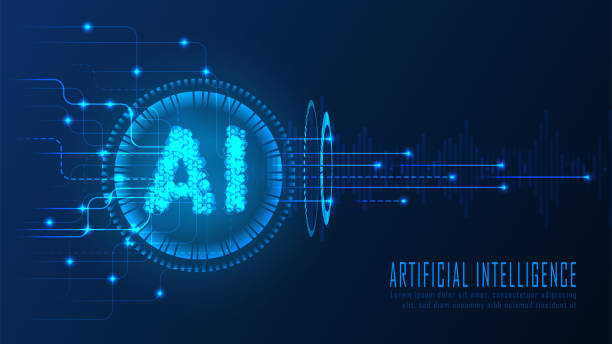Introduction to Artificial Intelligence and the Current Landscape
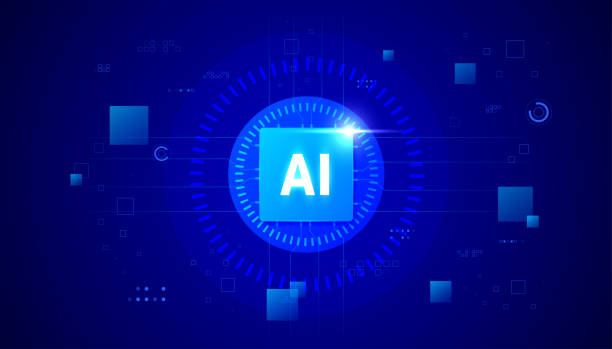
Artificial Intelligence (#AI) is no longer merely a science-fiction concept; it is rapidly becoming the backbone of the #global_economy and a major driver of change across many #industries.
In recent years, remarkable advancements in areas such as Deep Learning (#DeepLearning) and Natural Language Processing (#NLP) have enabled AI to perform tasks previously only imaginable by humans.
From virtual assistants to image recognition systems and self-driving cars, AI’s footprint is increasingly evident in our daily lives.
This rapid development raises significant questions about the future of AI jobs and its impact on the global labor market.
Will AI lead to a significant reduction in jobs, or will it create new employment opportunities? Numerous reports indicate that many large technology companies have made massive investments in this field and are actively seeking top talent in AI.
This trend suggests that AI is not just a powerful tool, but also a #driving_force for structural changes in the labor market.
Understanding these changes and preparing for them will be crucial for individuals and organizations to remain competitive in the future world of work.
This explanatory analysis seeks to examine the various dimensions of this transformation.
Does your current corporate website present a worthy image of your brand and attract new customers?
If not, transform this challenge into an opportunity with Rasaweb’s professional corporate website design services.
✅ Significantly enhances your brand’s credibility and image.
✅ Smooths the path for attracting new leads and customers.
⚡ For free and expert consultation, contact Rasaweb now!
New Job Opportunities in the Age of Artificial Intelligence
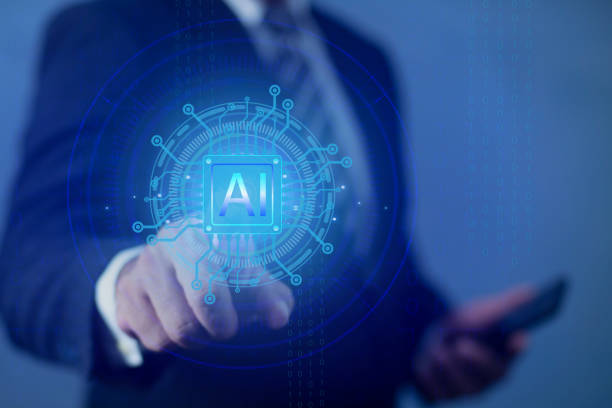
Contrary to the common belief that AI only leads to job elimination, this technology is opening new horizons for creating novel employment opportunities.
Many labor analysts believe that alongside the disappearance of some routine jobs, new positions requiring more complex skills and greater human interaction will emerge.
These jobs include machine learning engineers, data scientists, AI ethicists, AI user interface designers, and robotics specialists.
These roles require a combination of deep technical knowledge and creative problem-solving abilities.
Recent reports indicate that the demand for specialists in these fields is increasing exponentially.
Jobs related to the maintenance, monitoring, improvement, and development of AI systems will account for a significant portion of the future of AI employment.
Furthermore, new roles in training and adapting the workforce to AI technologies will emerge, helping individuals acquire the necessary skills to work alongside intelligent systems.
These changes provide an opportunity for growth and specialization in fields that did not exist before, serving as a guide for future career orientations.
Challenges and Risks for Traditional Jobs
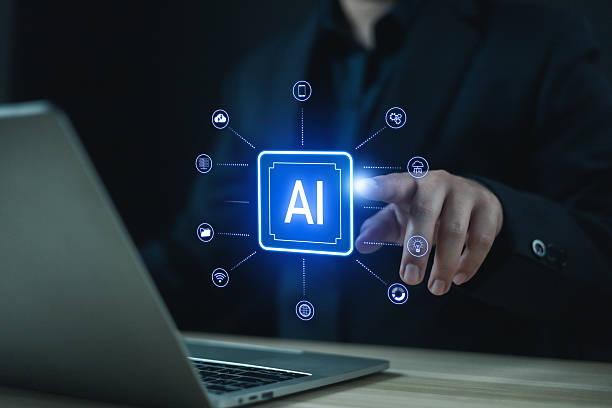
Despite new opportunities, the future of AI jobs also presents significant challenges for traditional and routine occupations.
The main concern is the replacement of human labor with automated systems, especially in industries reliant on repetitive and predictable tasks.
Manufacturing plants, customer services, accounting, and transportation are among the sectors most vulnerable to automation.
Various analyses have raised the question of whether society is adequately prepared to face such a scale of changes? Can our #educational_infrastructures rapidly respond to new needs?
These changes will require extensive retraining and skill development for millions of people.
Lack of proper planning can lead to increased #structural_unemployment and #economic_inequality.
These challenges demand deep analytical approaches and comprehensive policymaking to ensure that the transition to a world of work with AI is as fair and inclusive as possible.
Below, a table of at-risk and AI-resistant jobs is presented.
Table 1: Impact of Artificial Intelligence on Jobs
| Jobs at Risk of Automation | Jobs More Resistant to Automation |
|---|---|
| Typists and Secretaries | Data Scientists and AI Analysts |
| Production Line Workers | Project Managers and Creative Teams |
| Data Entry Clerks | Healthcare Professionals (Doctors, Nurses) |
| Drivers and Machine Operators | Teachers and University Professors |
| Customer Service Representatives (Routine) | Artists, Writers, and Creative Designers |
| Accountants and Auditors (Some Tasks) | AI Ethics Engineers and Lawyers |
Skills Needed to Adapt to the Future of AI Careers

To succeed in the future of AI jobs, individuals need to develop a new set of skills that go beyond mere technical abilities.
AI may automate repetitive tasks, but it still heavily relies on humans in areas such as #creativity, #critical_thinking, #emotional_intelligence, and #complex_problem_solving.
Soft Skills (#SoftSkills) like effective communication, collaboration, leadership, and adaptability to change will become even more crucial.
For instance, while AI can analyze data, it is humans who must ask the right questions, interpret the results, and make ethical and strategic decisions based on them.
Continuous learning and the ability to #Reskilling and #Upskilling are no longer an option, but a necessity.
Individuals who can quickly adapt to new technologies and use them as tools to increase their productivity will have an advantage in the future labor market.
This is a key guidance for anyone who wants to remain successful in their career path in the age of AI.
Organizations must also invest in their employees’ #training and #skill_development programs to ensure their teams are prepared to face these transformations.
Is your company’s website as professional and trustworthy as it should be? With specialized corporate website design by Rasaweb, create an online presence that reflects your credibility and attracts more customers.
✅ Build a powerful and professional image for your brand
✅ Convert visitors into real customers
⚡ Get a free consultation now!
The Role of Education and Retraining in Job Transformations
![]()
As the labor market transforms under the influence of AI, the role of educational systems and retraining programs becomes increasingly vital.
Schools, universities, and vocational training institutions must rapidly update their curricula to provide the skills required for the future of AI jobs.
These skills include programming, data science, machine learning, robotics, as well as soft skills such as systems thinking and creativity.
Governments and non-profit organizations must also invest in creating extensive retraining opportunities, especially for workers whose jobs are at risk due to automation.
In addition to formal education, companies also have a responsibility to invest in training their employees to work with AI tools and adapt to new roles.
This includes in-house training courses, workshops, and mentoring programs.
Emphasis on #continuous_learning and fostering a #culture_of_adaptability to technological changes are among the main recommendations for organizations.
This is an explanatory and educational approach that demonstrates how to cope with rapid changes in the world of work and leverage them for progress.
Artificial Intelligence and Increased Job Productivity
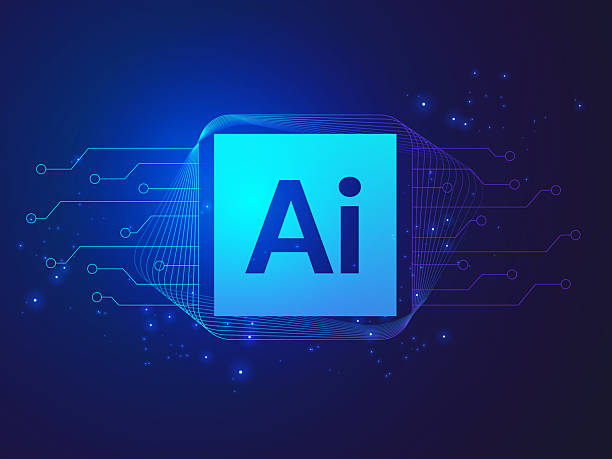
One of the key aspects of the future of AI jobs is its ability to significantly increase #job_productivity.
AI is not simply meant to replace humans; rather, it can act as a powerful assistant and augment human capabilities.
For example, in medicine, AI can assist doctors in diagnosing diseases with high accuracy, or in engineering, optimize complex designs.
This human-machine collaboration leads to increased quality, speed, and efficiency in many work processes.
Many leading companies are currently using AI to automate repetitive and administrative tasks, allowing their employees to focus on higher value-added and more creative work.
This implies a #collaborative_economy, where humans and AI work together to achieve common goals.
AI can process vast amounts of data and identify patterns that are difficult for humans, while humans can add insight, creativity, and emotional intelligence to the equation.
This specialized and analytical approach offers a positive outlook on #human-AI_synergy, which will ultimately lead to an overall increase in productivity across organizations and the economy.
These developments can change our definition of “work” and lead towards jobs requiring more strategic and human-centric thinking.
Ethical and Social Aspects of the Future of AI Jobs
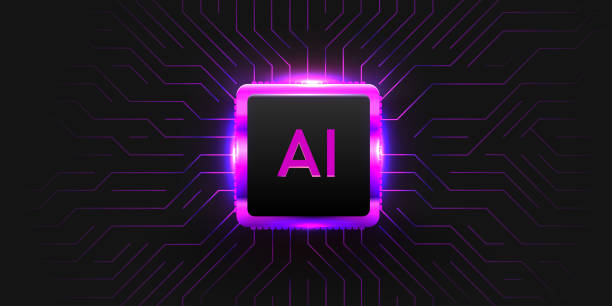
Alongside all technical benefits and challenges, the future of AI jobs also entails complex ethical and social issues that require serious attention.
These issues include #algorithmic_bias, #data_privacy, and #unequal_wealth_distribution.
If AI systems are trained with biased data, they can reinforce existing societal discriminations and even lead to the weakening of job positions for certain groups.
This is a thought-provoking content that society must actively grapple with.
Furthermore, concerns exist regarding #job_quality and employee #mental_health in workplaces heavily reliant on AI.
Will jobs gravitate towards more rigid and mechanical tasks, or will valuable human interactions remain possible? Developing strong ethical frameworks and #fair_labor laws is essential to ensure that AI is used for the benefit of all humanity.
These issues require deeper analytical scrutiny and demonstrate that technological advancement must be accompanied by #social_responsibility to ensure that ethical principles are observed in the design and implementation of AI.
Table 2: Ethical Considerations in AI Development
| Ethical Consideration | Explanation |
|---|---|
| Transparency | The ability to understand how AI systems make decisions. |
| Fairness | AI systems’ lack of bias and discrimination against specific groups. |
| Privacy | Protection of personal and sensitive data used by AI. |
| Accountability | Clear responsibility for the consequences of AI decisions. |
| Security | Resistance to cyberattacks and misuse of AI. |
| Human Control | Maintaining human oversight and intervention capability in AI systems. |
Startups and Entrepreneurship in the AI Ecosystem
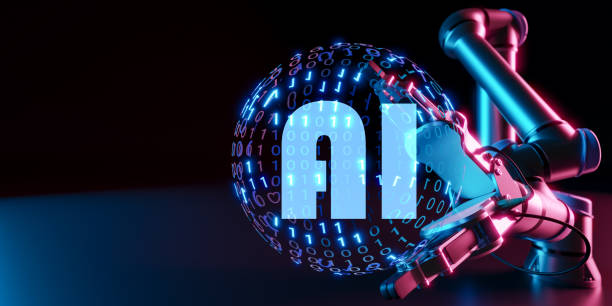
The future of AI jobs not only transforms existing occupations but also provides a vast arena for #entrepreneurship and the creation of new startups.
The emergence of AI enables entrepreneurs to address new market needs by offering innovative solutions.
From AI platforms for supply chain optimization to automated content generation tools and AI-powered medical diagnostic software, we witness the daily emergence of creative ideas and nascent companies in this field.
Venture capital investment in AI startups is also steadily increasing, indicating the high potential of this sector for value creation and new job opportunities.
This #dynamic_ecosystem encourages individuals with ambitious ideas to start their own businesses, in a way creating a fun yet competitive environment for innovation.
The success of companies like OpenAI or DeepMind has inspired many young entrepreneurs to enter the AI arena and play their part in shaping the AI job landscape.
This new wave of entrepreneurship not only creates jobs but also helps push the boundaries of technology, marking an important news in the world of technology.
Are you missing out on business opportunities because of an outdated website? With Rasaweb, solve the problem of not attracting potential customers through your website once and for all!
✅ Attract more high-quality leads
✅ Boost brand credibility in customers’ eyes
⚡ Get free corporate website design consultation
Global Outlook on the Future of AI Jobs
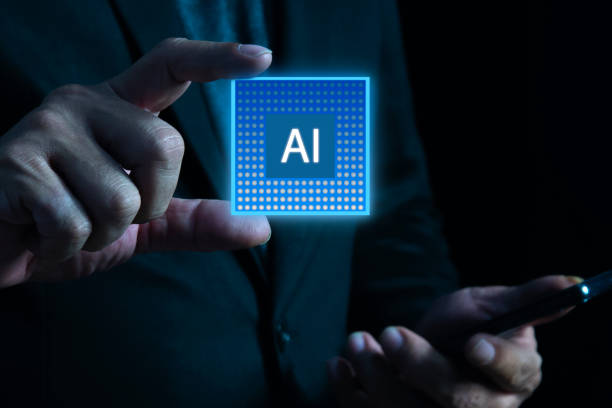
The future of AI jobs is a global phenomenon, but its impact will not be uniformly distributed across countries and industries.
Developed countries with strong #technological_infrastructures and high investment in research and development will likely be more successful in leading the creation of AI-based jobs and adapting to labor market changes.
In contrast, developing countries may face greater challenges in funding workforce retraining and establishing necessary infrastructures.
Different industries will also be affected differently.
The service sector, especially those involving administrative and repetitive tasks, may face the most significant changes, while sectors like education, arts, and healthcare, which require #human_interactions and #interpersonal_skills, will show greater resilience.
International organizations and governments worldwide are exploring #public_policies to manage this job transition and mitigate its negative effects.
This includes #social_support programs, investment in education and innovation, and the creation of regulatory frameworks for the ethical use of AI.
This global analysis helps us understand the more complex and multifaceted dimensions of the world of work with AI.
Preparing for the Transformations in the Future of AI Jobs
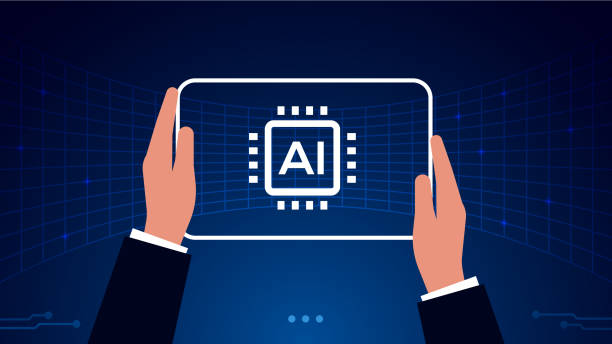
Given all the discussed dimensions, preparing for the future of AI jobs is an undeniable necessity.
For individuals, this means adopting a #lifelong_learning_mindset.
Investing in AI-related technical skills, as well as strengthening soft skills like creative thinking, problem-solving, and emotional intelligence, will be key to success.
Online courses, bootcamps, and university programs can be suitable pathways to acquire these skills.
For organizations, this means rethinking human resources strategies, investing in #employee_retraining, and fostering a culture that embraces innovation and adaptability to new technologies.
Governments must also play an active role in establishing #supportive_policies, facilitating job transitions, and ensuring fairness in the new labor market.
These guidelines are essential for achieving a successful transition towards the future of AI jobs.
Ultimately, collaboration among individuals, companies, and governments will determine the extent of success in harnessing AI’s potential and mitigating its challenges.
This is a comprehensive explanation of how to prepare for a world where AI plays a central role.
Frequently Asked Questions
| Question | Answer |
|---|---|
| What impact will AI have on the future job market? | AI will automate repetitive jobs, but at the same time, it will create new and more complex jobs in areas such as the development, maintenance, and training of AI systems. |
| Which jobs are most at risk of being replaced by AI? | Jobs involving repetitive, rule-based tasks with low requirements for creativity or emotional intelligence, such as some manufacturing jobs, data entry, and simple customer service, are most at risk. |
| What skills are essential for success in the future of jobs with AI? | Skills such as critical thinking, complex problem-solving, creativity, emotional intelligence, data literacy, the ability to work with AI, and lifelong learning are of high importance. |
| Will AI cause widespread unemployment? | Some jobs will be lost, but history has shown that new technologies, instead of causing widespread unemployment, reshape the labor market and create new jobs. The need for adaptation and retraining is crucial. |
| What new job opportunities are emerging with the rise of AI? | Jobs such as Machine Learning Engineer, Data Scientist, AI Ethicist, Human-AI Interaction Designer, and Digital Transformation Consultant are among the new opportunities. |
| What is the role of education in preparing for the future of jobs with AI? | Education must focus on developing soft skills, computational thinking, digital literacy, and the ability for continuous learning to prepare individuals for future changes. |
| How can I prepare myself for labor market changes caused by AI? | You can prepare yourself by learning new skills related to AI and data, strengthening soft skills, developing critical and creative thinking, and adopting lifelong learning. |
| Will AI ethics become an important career field? | Yes, given increasing concerns about biases, privacy, and automated decision-making by AI, the role of AI ethics specialists will become crucial to ensuring its responsible development. |
| What is the importance of human-AI collaboration in the future of work? | Human-AI collaboration, rather than competition, will shape the future of the labor market. AI can be a tool to increase productivity and allow humans to focus on more complex and creative tasks. |
| Which industries will be most affected by AI? | Almost all industries will be affected, but sectors such as healthcare, finance, transportation, manufacturing, education, and customer service are at the forefront of AI adoption and transformation. |
And other services of Rasa Web advertising agency in the field of advertising
Smart Direct Marketing: A specialized service for growing user engagement based on key page optimization.
Smart Customer Journey Map: Designed for businesses seeking online growth through user experience customization.
Smart Marketing Automation: An effective tool for user engagement through precise audience targeting.
Smart UI/UX: A fast and efficient solution for customer acquisition with a focus on attractive user interface design.
Smart Social Media: A professional solution for analyzing customer behavior with a focus on intelligent data analysis.
And hundreds of other services in the field of internet advertising, advertising consultation, and organizational solutions
Internet Advertising | Advertising Strategy | Advertorial
Sources
AI and the Future of Jobs on IranJob
The Impact of AI on Employment on Techrato
AI Developments and Iran’s Labor Market – ISNA
New AI Career Paths on Bama Blog
? To elevate your business in the digital space, Rasaweb Afarin Digital Marketing Agency, specializing in secure website design and SEO, is always with you to ensure a powerful and lasting online presence.
📍 Tehran, Mirdamad Street, next to Bank Markazi, Kazeroon Jonubi Alley, Ramin Alley, No. 6

